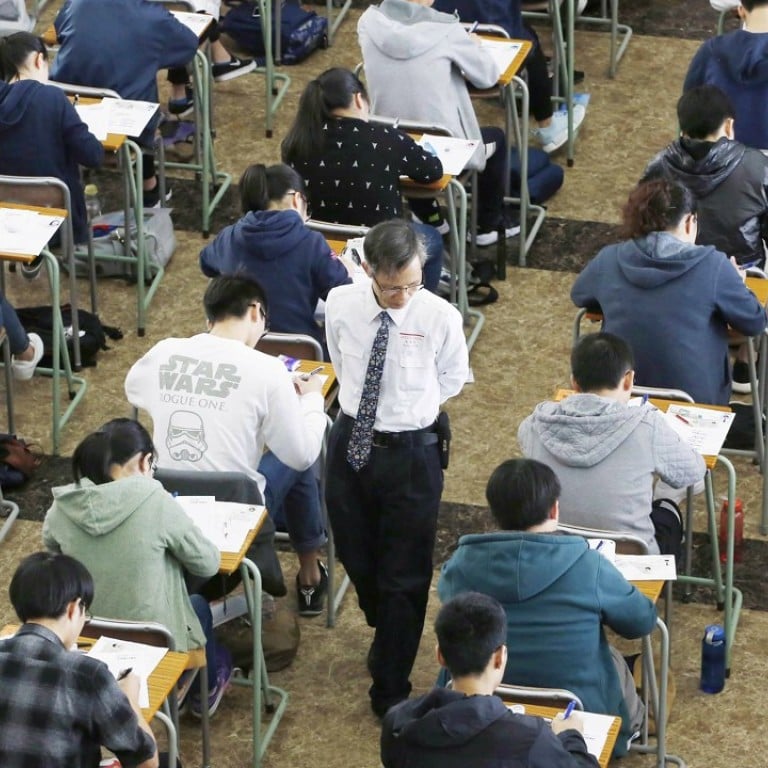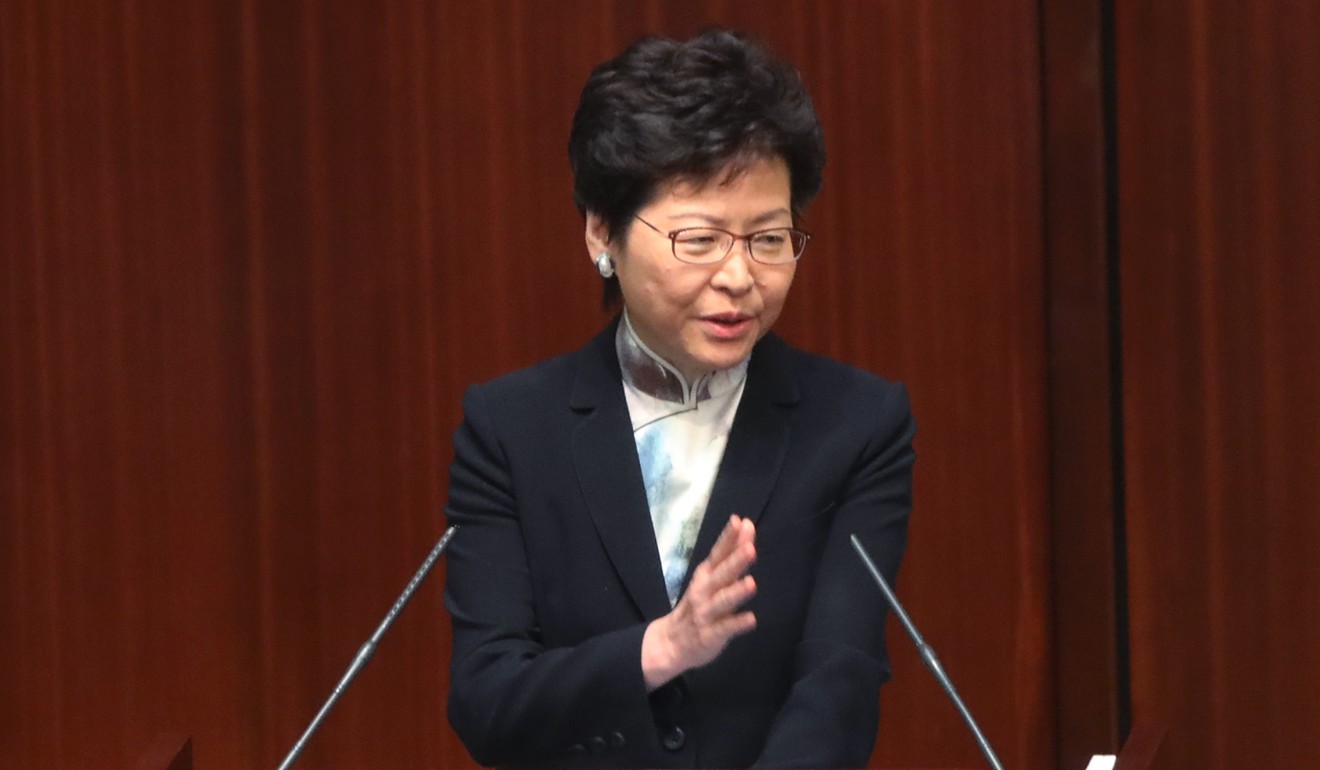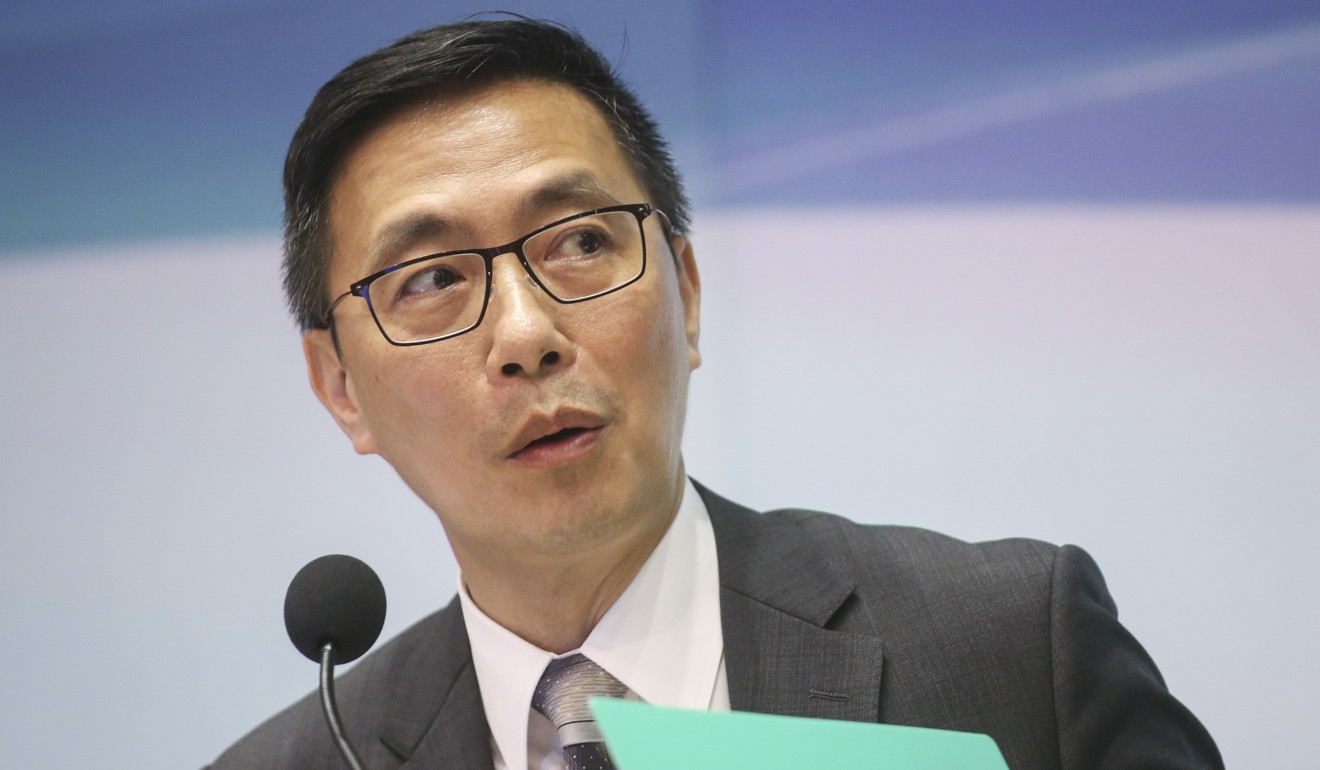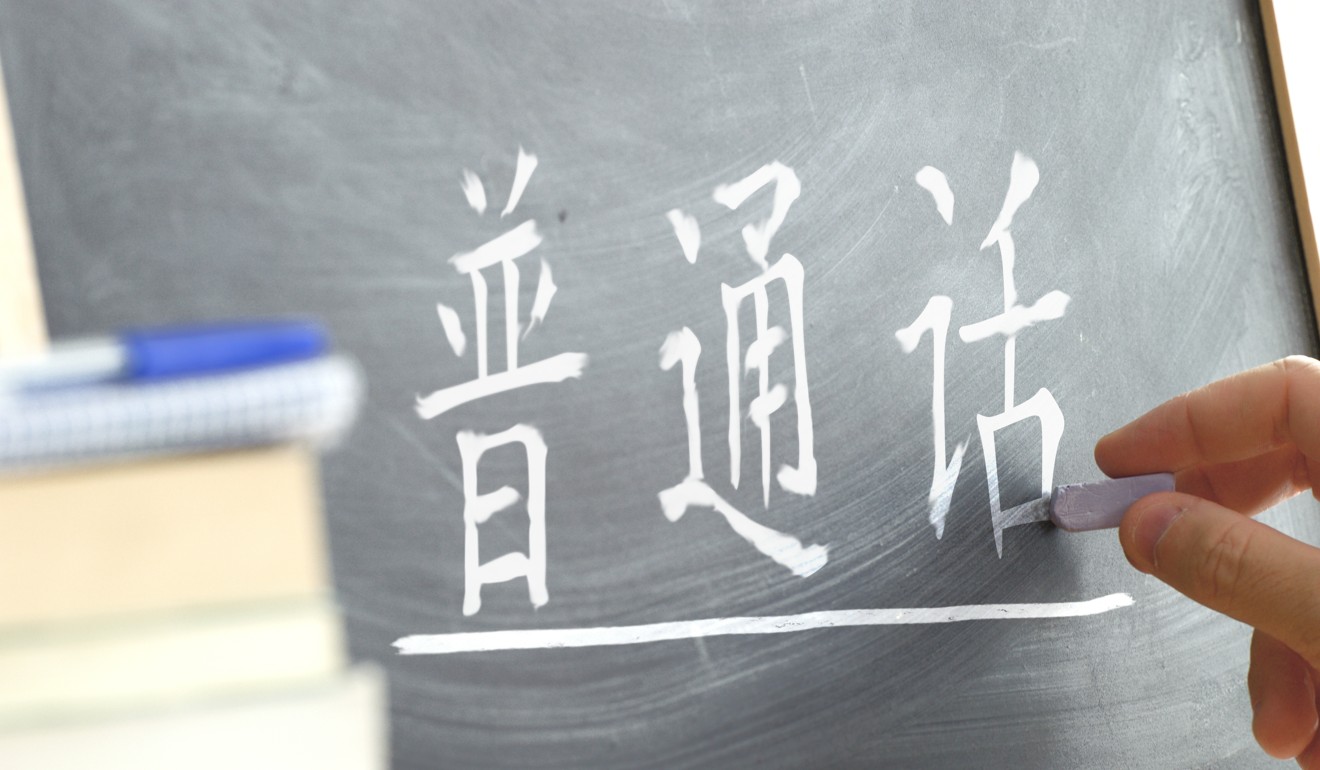
Should Mandarin replace Cantonese in Hong Kong? No, says Carrie Lam
Chief Executive Carrie Lam, education secretary and mainland linguist all dismiss idea that Mandarin will be used to teach Chinese in city’s schools
Hong Kong’s leader on Thursday dismissed a controversy over the use of Mandarin in public schools and whether Cantonese could be considered the city’s mother tongue as a “non-issue”, telling legislators her administration had no plan to change its policy on the language used to teach.
The issues have come under the spotlight after a task force was set up last November to review primary- and secondary-level curriculums.
“[The task force] has not yet formed any views, and people are already worried, doubtful, or even saying that there are influences from the ‘north’,” Lam said, referring to Beijing.

The controversy started after an Education Bureau article issued with supporting materials for primary Chinese language teachers was posted on an online forum last month, triggering concerns that Cantonese was under attack.
The article, written by a former official of the central government’s State Language Commission, stated that the city’s official language should be one commonly used by the Han people, which was Mandarin, instead of its “mother dialect” Cantonese.
During her question and answer session at Legco on Thursday, Lam would not be drawn when lawmaker Shiu Ka-chun, of the social welfare constituency, asked her what her mother tongue was.
“We are speaking Cantonese every day, so this is a non-issue,” she said.
When Shiu continued to push her, she replied: “Sorry, I don’t answer silly questions.”

Speaking at Legco on Wednesday, Secretary for Education Kevin Yeung Yun-hung denied any plans to begin teaching the Chinese-language curriculum in Mandarin and said the intent of the article, which had been distributed since 2013, was to share a different opinion.
“Actually our primary education is mostly done in Cantonese … So you can see clearly the government’s stance on educational language,” he said.
Chao Zongqi, a linguist on a committee advising the State Language Commission, said the city should not be forced to teach in Mandarin instead of Cantonese.
“Over the past two decades, since Hong Kong was returned to China, people there have different opinions, including those advocating independence, so the situation is really complicated and schools will not be forced [to teach in Mandarin],” Chao told the Post.
However, he said Mandarin was likely to gain a larger presence in the city “just like the yuan”, although schools might not drive its popularity.
Linguists estimate more than 200 different dialects are spoken in China, but the country is united by one “common speech” – Mandarin, which is also known as Putonghua.
The State Language Commission is responsible for regulating and standardising the use of Chinese language and characters, as well as promoting Mandarin. Chao also leads a task force that will set standards for primary and secondary Chinese language curriculums on the mainland.

Chao said Mandarin was based on northern dialects, which “have great variety as well”, and its purpose was not to replace languages in China’s diverse regions.
“It serves as a statutory common language with which people from different places can understand each other,” he said.
About 92 per cent of Hong Kong’s population is Han Chinese, and more than 88 per cent of Hongkongers aged between six and 65 identify Cantonese as their native language. Mandarin was second at 3.9 per cent, according to official statistics from 2016.
Chao said it was Hong Kong’s business sector that helped promote Mandarin because of a need to communicate with mainland Chinese clients.
“This is very different from the situation across the border where schools serve as the major promotion channels,” Chao said.
Hong Kong was not alone in trying to preserve its own language, Chao noted.
“In recent years, a trend of teaching children Shanghainese has emerged in Shanghai while Mandarin remains the single standardised teaching language in mainstream schools,” he said.
Chao, who was born in Shanghai, admitted that he insisted his grandson was taught Shanghainese, part of the Wu dialect, before he started kindergarten, because he knew that once the child was in the school system, Mandarin would become the boy’s dominant language.
“I told him his mother tongue, and his grandpa’s mother tongue, was Shanghainese,” Chao said, adding that learning multiple languages at a young age has shown to have several benefits for young children.
Chao suggested Hong Kong should continue its tradition of “bi-literacy and tri-lingualism”, which promotes competence in reading and writing Chinese and English, as well as fluency in Cantonese, Mandarin and English.
“For example, the chief executive takes the oath of office in front of the state leader in Mandarin and speaks to the Hong Kong public in Cantonese.”
Additional reporting by Sum Lok-kei


